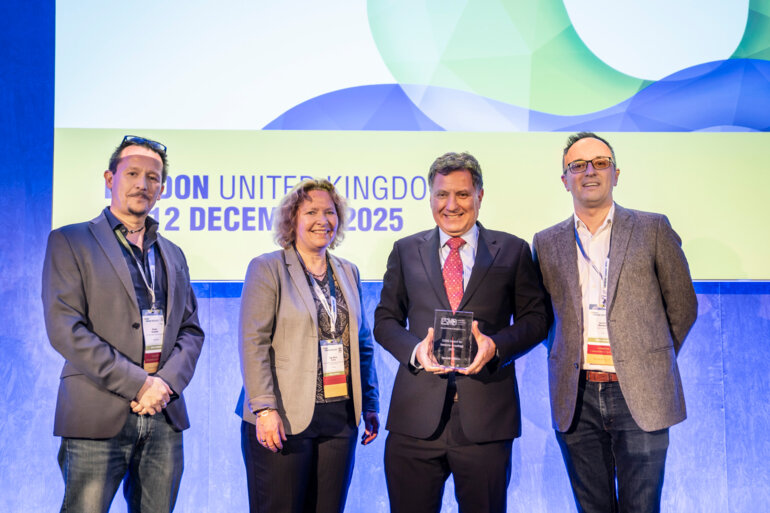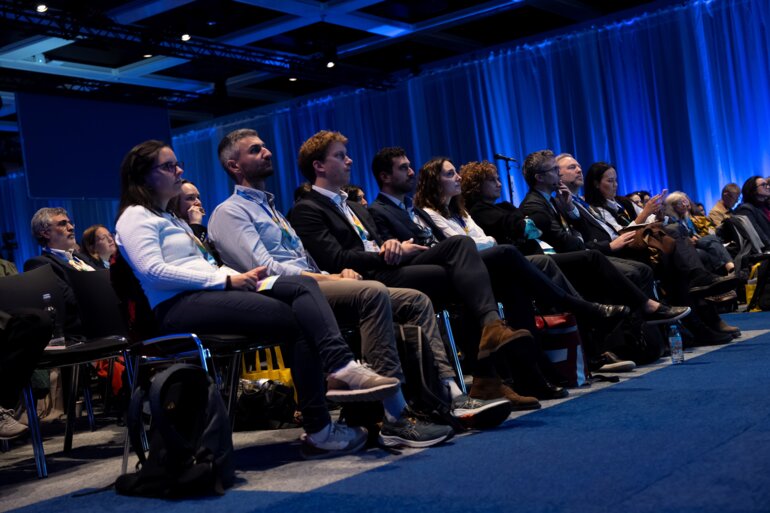Study findings reveal that good thymic health, based on an AI-derived algorithm, is associated with improved survival after immunotherapy in different tumour types
Although the thymus is not routinely evaluated in oncology, unless it is the suspected primary site of a tumour, thymus health seems to play a pivotal role in response to immunotherapy, according to a study presented at the ESMO Congress 2025 (Berlin, 17–21 October). “The reported data are particularly intriguing as there are no accurate biomarkers to guide decisions regarding whether to escalate immunotherapy with chemotherapy or whether to de-escalate immunotherapy in the face of poor efficacy and excess toxicity,” explains Prof. Alessandra Curioni-Fontecedro from the University of Fribourg and Cantonal Hospital of Fribourg, Switzerland. “And while we have some biomarkers related to the tumour itself, we have no measure of the overall immune health of the individual, which could be prognostically very valuable.”
In recent years, the thymus emerged as an organ of interest in oncology following a report that thymectomy was associated with increases in all-cause mortality and the risk of cancer (N Engl J Med. 2023;389:406–417). In the study presented in Berlin, researchers developed a deep-learning framework to quantify thymic health based on routine computed tomography (CT) scans as a radiographic proxy for thymic functionality by using a large training cohort (n=5,674) (Abstract 108O). High versus low thymic health, assessed by their algorithm, was found to be associated with improved progression-free survival (adjusted hazard ratio [HR] 0.63; 95% confidence interval [CI] 0.50–0.80; p<0.001) and improved overall survival (OS) (adjusted HR 0.56; 95% CI 0.43–0.74; p<0.001) in the HARVARD-NSCLC cohort of 1,218 patients with non-small cell lung cancer (NSCLC) treated with immunotherapy.
These associations remained significant across clinically relevant PD-L1 and tumour mutational burden strata. When biological validation was performed in the TRACERx cohort of 464 patients with NSCLC who had undergone surgery only, higher thymic health was associated with higher levels of thymic function markers: thymic output, T-cell receptor diversity and T-cell fraction. Pan-cancer analysis using the HARVARD-PAN cohort of 2,258 patients treated with immunotherapy confirmed positive associations between thymic health and survival in melanoma, and breast and kidney cancers (p≤0.020).
The results provide evidence that thymus function could represent a novel non-invasive precision biomarker to guide decision-making; however, they come from retrospective analyses, as Curioni-Fontecedro notes. “It will now be key to evaluate if thymic health measures can be integrated into routine analysis of CT scans, especially in light of thymic changes during ageing, and determine whether prospective assessment translates into improved decision-making and outcomes in large trials."
One of the main hurdles in the field is that biomarkers are often researched and analysed within small cohorts of patients in different, separate studies. Curioni-Fontecedro concludes, “The future of the biomarker field lies in their combination and understanding the implications of the different marker levels, including thymic health. Ideally, patient data and information from the many studies and the multiple companies involved should be integrated to define the best combination of markers to predict prognosis and treatment response.”
Programme details:
Bernatz, S et al. Thymic health is associated with immunotherapy outcomes in patients with cancer. ESMO Congress 2025 - Abstract 108O








